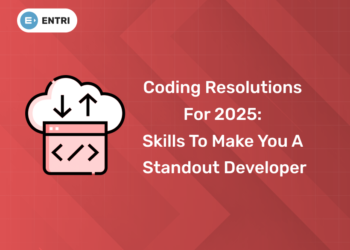Table of Contents
Java, the object-oriented programming language developed by Sun Microsystems in the 1990s, has grown to become one of the most popular programming languages of all time. With its large community of developers and availability on both major operating systems and mobile devices, Java’s popularity isn’t going anywhere anytime soon. Because Java is so easy to learn, you can start your programming journey with it today—no computer science degree required! Here are ten tips to get you started learning Java at home.
1) Choose The Right Environment
Your learning environment has a huge impact on your ability to learn. You need somewhere you can focus, be productive, and not be distracted by Facebook or Twitter. Consider using tools like Freedom or Self Control to make sure you stay focused on what’s important—learning Java. You’ll get into a routine of learning every day without even having to think about it which will put you ahead of other students who don’t have that same kind of discipline. It’s essential to think about how you’re going to approach your study so that it becomes an integral part of your life as soon as possible.
Learn to code from industry experts! Enroll here!
2) Have A Coding Mentor
1: What is the default value of a boolean in Java?
When you’re getting started with a new language, one of your biggest problems is going to be finding a good place to get help. Don’t expect to just pick up a book or read through some tutorials and figure it out. It takes time, perseverance, and help from others who know what they’re doing. If you have a friend who codes in Java and is willing to answer your questions when you don’t understand something, all the better. If not, search online for coding forums and mailing lists—there are thousands of them out there for any programming language you can think of! It’s unlikely that you’ll need more than one or two sites that cater to your specific needs; stick with them until people start helping.
3) Practice, Practice, Practice
The best way to learn a new language is to jump right in and start writing code. Sure, it’s tempting to read books and tutorials on your own, but you’ll often find yourself staring at confusing snippets of code for an hour before remembering why you started. Instead, consider joining a coding community or attending a hackathon so you can pair programs with other developers. Not only will it be fun, but many coders are happy to answer questions when they see beginners trying their hand at coding. Plus, practice makes perfect! Don’t expect to get up and running quickly if you haven’t done any programming before. And remember: It doesn’t matter if you mess up—you’re learning! If all else fails, try out some online tools like Codecademy or Treehouse that let you run through lessons step-by-step until you feel comfortable enough to build something on your own.
Enroll in our certificate program in Full Stack Web Development!
4) Understand Variables and Operators
Variables and operators are what make computer programming interesting. Variables are names for values, which can be numbers or text. Operators, of course, perform computations on those values—adding them together, comparing them, even assigning them a new value based on a calculation. All programming is about managing your variables; if you don’t know what data you have and how to process it, your programs won’t do anything useful. If you’re just getting started with programming (and even if you aren’t), learning variables and operators is critical because they underpin everything else you’ll learn in subsequent courses.
5) Create a Software Project
One of my favorite ways to learn a new programming language is by building projects, especially software. The project doesn’t have to be anything special—you can use existing code from open source projects or create something on your own. You don’t even need to do it for work, either. Pick something that piques your interest and just have fun with it. I built an app for tracking soccer player stats when I was first learning how to program (and actually had plans to build a bunch more apps in a specific soccer niche), which helped me learn Java really quickly. Try creating an app using one of these great tools: Android Studio, Xcode, or Microsoft Visual Studio.
6) Use On-demand Training to Go at Your Own Pace
The on-demand training program makes use of step-by-step instructions, which will help you master basic concepts in the java programming language easily. Even if you are a beginner in the software development field, it is not difficult to learn java using video tutorials that are available on-demand as well as 24/7 live support and assistance from professionals. This way, you can go through all chapters without any hassles. As soon as you complete one chapter, move on to the next with self-explanatory instructional videos. So why wait? Start learning today!
Power up your career with Entri Elevate – Full Stack Development Course!
7) Familiarize Yourself With Basic OOP Concepts in Java
If you’re coming from a programming background in C++, for example, OOP should be a familiar concept. If not, you might want to brush up on what it is and how it works before starting with Java specifically. It’s OK if you don’t understand everything at first—remember that OOP is a skill that takes time to build up, so don’t beat yourself up if things seem confusing. A good way to learn basic concepts in OOP is books like Head First Object-Oriented Analysis and Design by Eric Freeman and Elisabeth Robson or Effective Object-Oriented Software Design: 50 Specific Ways to Improve Your Programs and Designs by Robert C.
8) Familiarize Yourself with Conditional Statements in Java
The if-then statements in Java are probably some of its most basic constructs, but they’re also some of its most useful. In many ways, they can be thought of as mini-programs that perform an action when a certain condition is met. If you’re new to programming and/or have never touched Java before, these simple conditional statements will help you get started with your first programming language. Now that you know what their parts mean and how they work, it’s time to learn how to build them.
9) Hone Your Logical Thinking Skills Through Data Structures in Java
We often think of languages like JavaScript, PHP, Python, and Ruby as requiring more logic than C# or C++. But it’s a mistake to think of programming languages in general as being better or worse at logic. It all depends on what they’re designed for. Unlike many general-purpose programming languages, Data Structures in Java are designed to solve particular problems—and so they have their own rules and approaches to things like data input and output, recursion, variables, and so on. This makes them an excellent way to practice your logical thinking skills.
10) Become Familiar With Loops In Java
Often, loops are used to iterate through data in arrays or databases. For example, if you’re working with a small database containing user information and want to display each user’s details on the screen, you can use a for loop to iterate through each of your rows and display them one by one. In general, there are three types of loops in Java: for-loops, while-loops, and do-while-loops. Each type has its own strengths and weaknesses that you should be aware of when writing your code. Whether you’re designing an app or just trying to solve a simple problem at home, understanding how to use loops correctly is a key step in progressing with Java! If you are interested to learn new coding skills, the Entri app will help you to acquire them very easily. Entri app is following a structural study plan so that the students can learn very easily. If you don’t have a coding background, it won’t be any problem. You can download the Entri app from the google play store and enroll in your favorite course.
Enroll in our certificate program in Full Stack Web Development!











